IN OTHER LANGUAGES
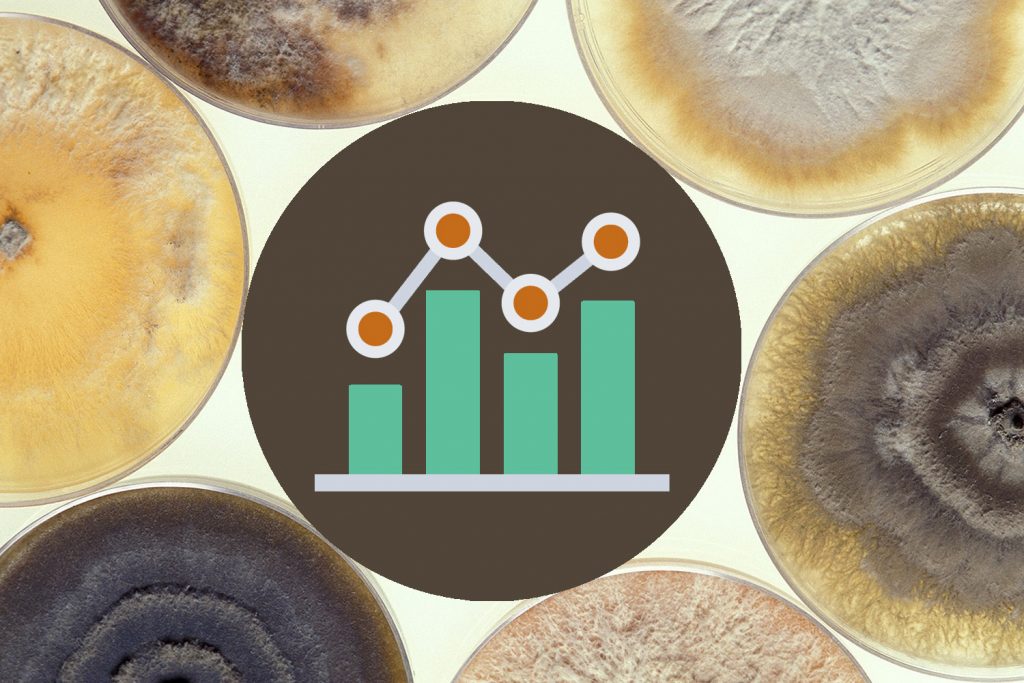
This report is a statistical summary of the more than 1150 analysis that we made in our laboratory of clinical services during 2019. Determinations of total aflatoxins (AFLA), vomitoxin (DON), fumonisins (FUM), T2-toxin (T2) and zearalenone (ZEN), and were carried out in samples of feedstuffs provided by our Chinese customers.
Looking at the general levels of contamination of all samples, all the samples we analyzed were contaminated with two mycotoxins or more. Compared to the results of the previous year, we find more samples with co-contamination.
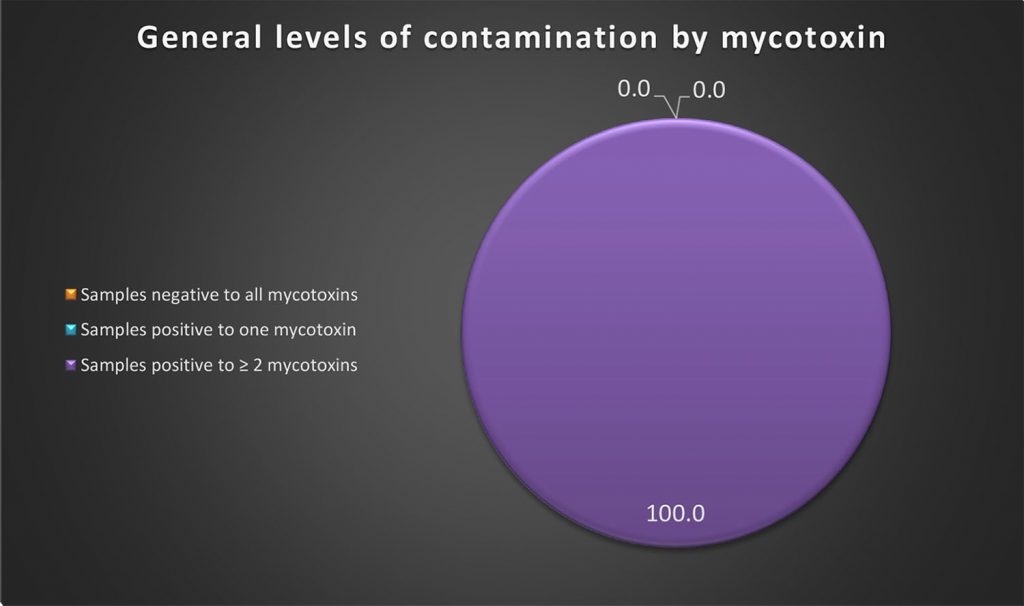
In 2019, we found aflatoxins, DON, T2-toxin, fumonisins or zearalenone in more than 89% of the samples. Compared to the results of 2018, the amount of samples contaminated by T2-toxin and zearalenone has increased significantly.
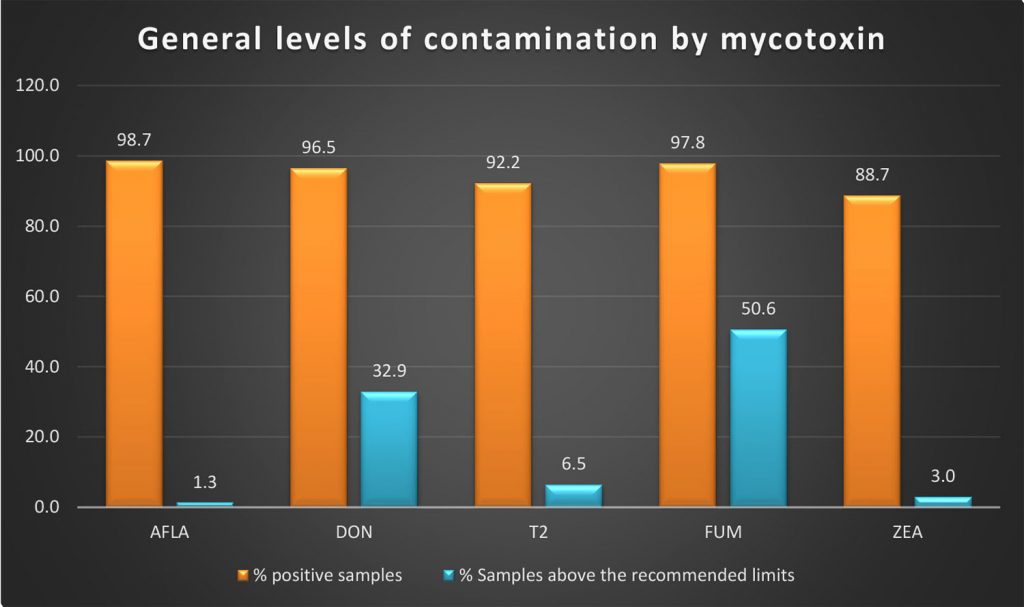
DON and fumonisins are the mycotoxins that are most frequently found to be above the recommended limit.
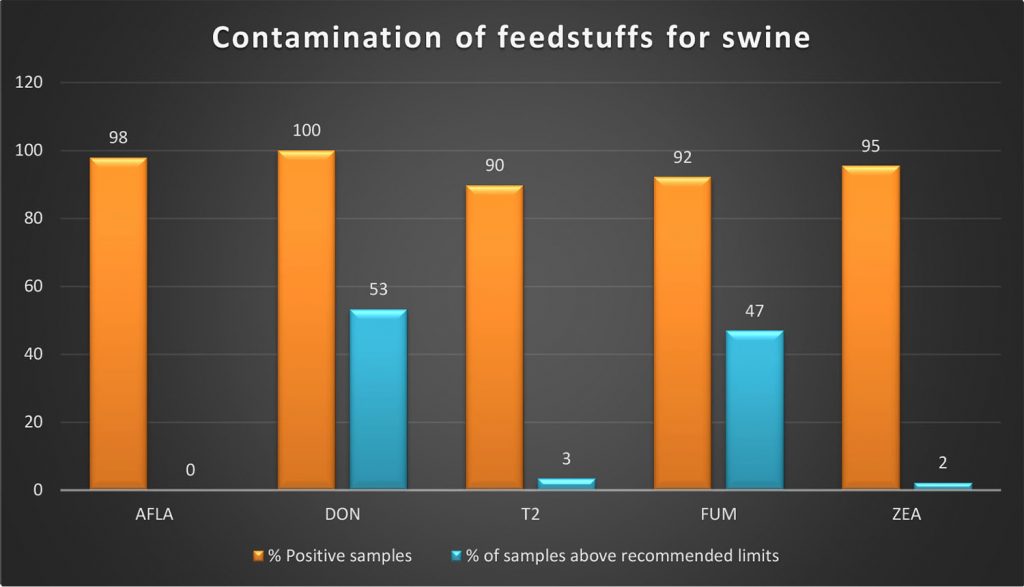

Most of the samples were positive to four or more mycotoxins.
More than 53% of the samples exceeded the safety limits of DON. As it is well-known, this toxin is related to impaired feed intake, decreased performance and alterations of gut health.
The number of samples exceeding the safety limits of fumonisins was also high (47%). Fumonisins are related to toxicity to the liver and the respiratory system and to gastrointestinal diseases.
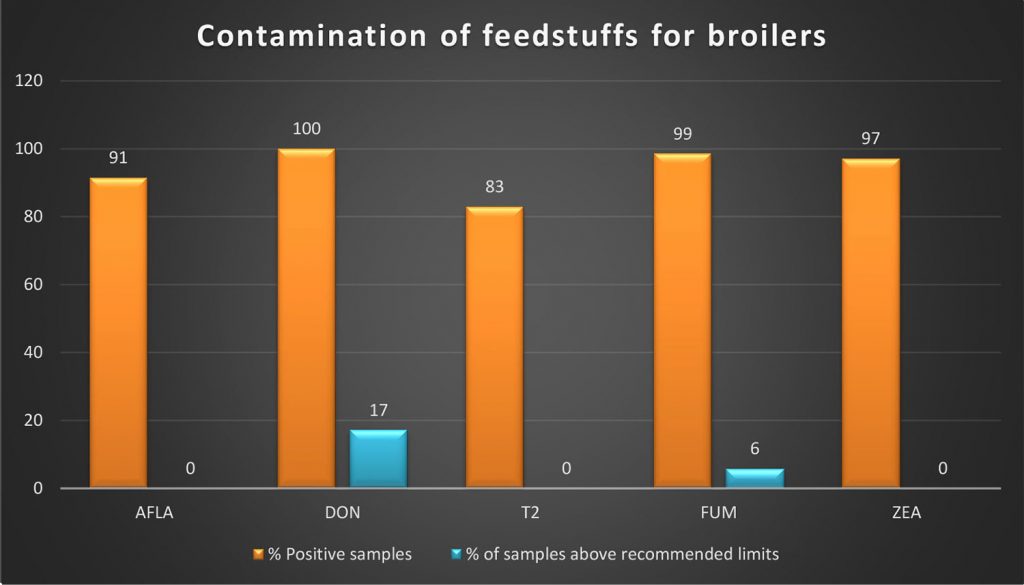

Most of the samples were positive to four or more mycotoxins.
17% of the samples exceeded the recommended levels of DON (vomitoxin). This mycotoxin is related to impaired feed intake, reduced growth and occurrence of digestive diseases.
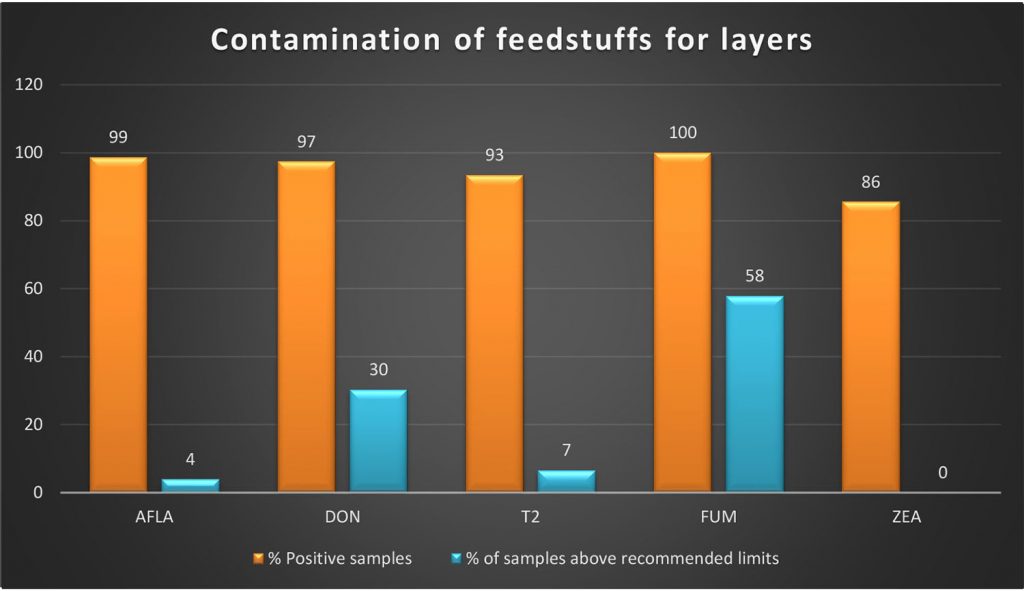

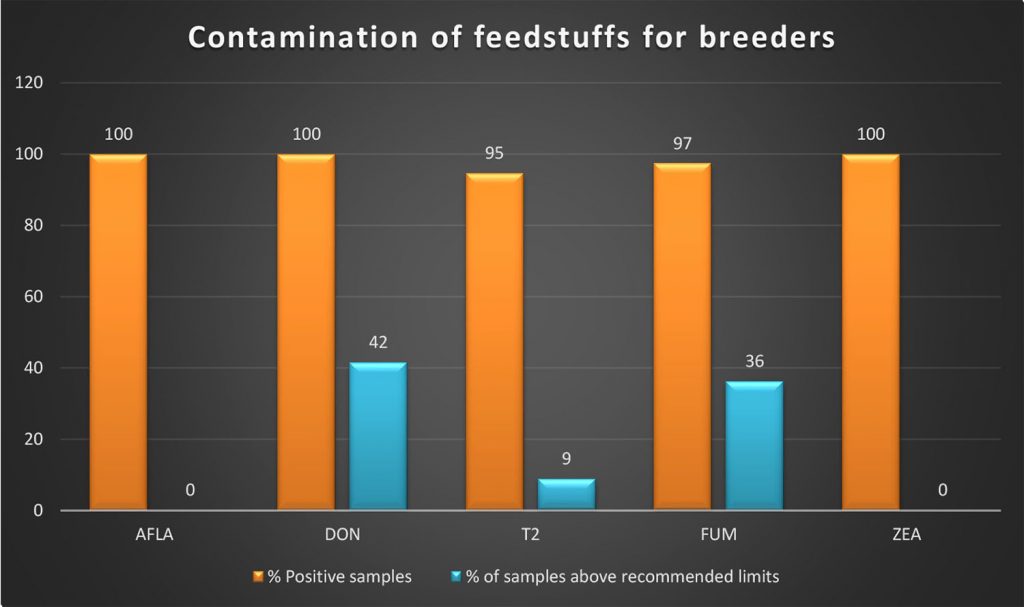

All the samples of feedstuffs for layers and breeders were positive to four or more mycotoxins.
58% of the samples of feedstuffs for layers and 36% of the feedstuffs for breeders exceeded the safety limits for fumonisins. Fumonisins are related to poor feed conversion, deficient egg quality and impaired gut heath.
30% of the samples of feedstuffs for layers and 42% of the feedstuffs for breeders exceeded the safety limits for DON, which is related to decreased productivity, higher occurrence of egg defects and digestive diseases.
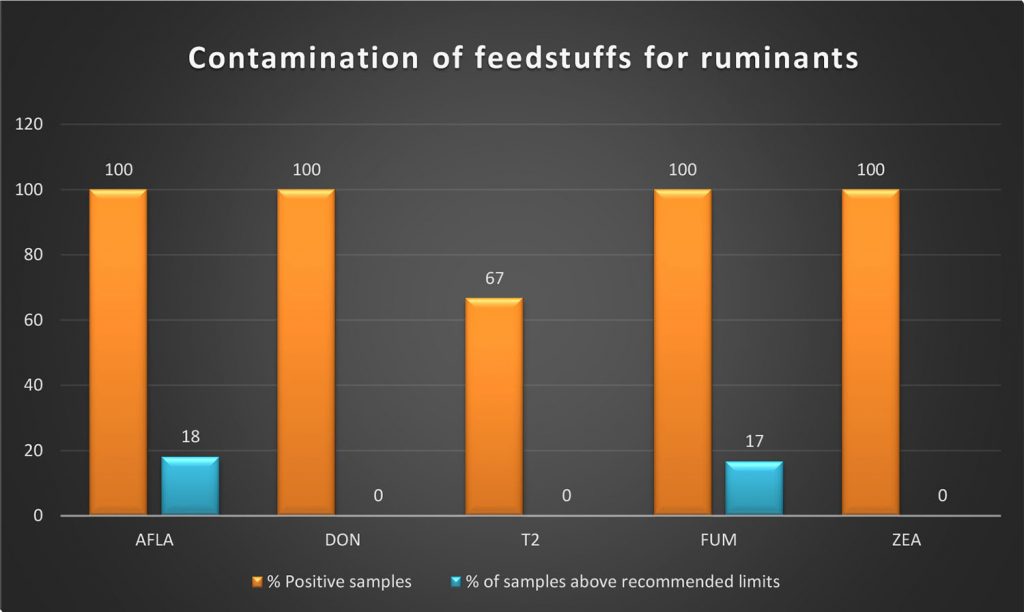
Most of the samples of feedstuffs for ruminants were positive to four or more mycotoxins.
18% of the samples exceeded the recommended limits for aflatoxins and 17% of the samples exceeded the recommended limit for fumonisins.
Compared to the results of the survey made in 2018, the percentage of samples contaminated with each mycotoxin increased and all samples were positive to two mycotoxins or more. In 2019, in feedstuffs intended for all species, DON and fumonisins were there mycotoxins that were most commonly found to be above recommended limits.
The results of this mycotoxin survey reiterate the importance of performing a mycotoxin determination of the feedstuffs prior to feeding them to the animals. We at PlusVet Animal Health offer a professional analysis service that determinates the mycotoxin levels your feeds, raw materials or milk and helps to make a risk assessment.
We underscore that, although there are a lot of mycotoxin binders in the market, PlusBind© and PlusBind Bio© show better adsorption rate for all mycotoxin than competitors, thanks to their strategic blends of highly active mycotoxin sequestering silicates.
The annual mycotoxin survey is bought to you thanks to the work of the Technical Team at Plusvet Animal Health, especially Ms. SunYing and Ms. GongPeihua.

Certain health statements may not be applicable in your region.